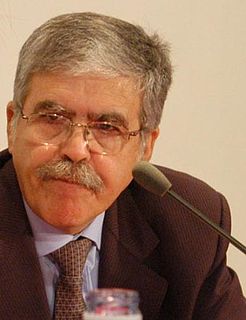
Néstor Carlos Kirchner Jr. was an Argentine politician who served as President of Argentina from 2003 to 2007 and as Governor of Santa Cruz from 1991 to 2003. Ideologically a Peronist and social democrat, he served as President of the Justicialist Party from 2008 to 2010, with his political approach being characterised as Kirchnerism.

Roberto Lavagna is an Argentine economist and politician who was Minister of Economy and Production from April 27, 2002 until November 28, 2005.
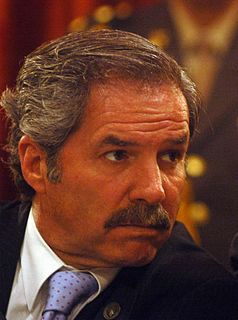
Felipe Solá is an Argentine politician of the Justicialist Party (Peronism) and was governor of Buenos Aires Province from 2002 until 2007.
Silvia Ester Giusti is a former Argentine Senator for Chubut Province. She is a member of the Argentine Justicialist Party.

Jorge Omar Sobisch is an Argentine centre-right politician, formerly governor of Neuquén Province. He leads the Neuquén People's Movement and was a candidate for President of Argentina in 2007.
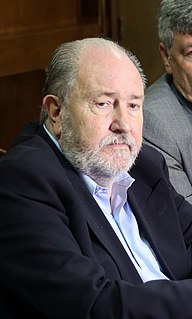
Carlos Alberto Verna is an Argentine Justicialist Party (PJ) politician, governor of La Pampa Province.
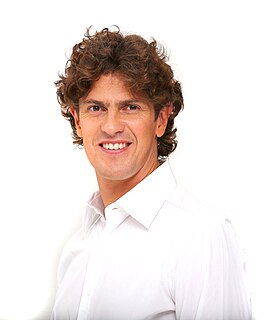
Martín Lousteau was the Minister of Economy and Production of Argentina under the administration of President Cristina Fernández de Kirchner, from December 10, 2007, until April 24, 2008. At the age of 37, Lousteau was the youngest person to occupy this office in more than five decades.

Juan Schiaretti known as El Gringo, is an Argentine accountant and Justicialist Party politician. He served as governor of the Province of Córdoba between 2007 and 2011, and is currently in the office since 2015.
Juan Pablo Cafiero is an Argentine politician and the Argentine Ambassador to the Vatican since 2008. He has served as a National Deputy and government minister, and is the son of Peronist grandee Antonio Cafiero.

Argentina held national presidential and legislative elections on Sunday, 23 October 2011. Incumbent president Cristina Fernández de Kirchner secured a second term in office after the Front for Victory won just over half of the seats in the National Congress.

Argentina’s former President and 1st Secretary General of the Union of South American Nations, Néstor Kirchner, died of heart failure on the morning of 27 October 2010 at the Jose Formenti hospital in El Calafate, Santa Cruz Province at the age of 60. Efforts to revive him were unsuccessful. His wife, President Cristina Fernández de Kirchner, was present with him when he died. He was also expected to run for president in 2011.
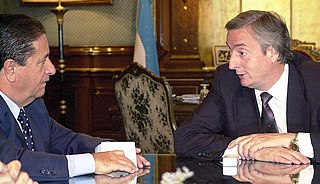
Federal Peronism, or Dissident Peronism, are the informal names given to a political alliance between Justicialist Party figures, currently identified mostly by its opposition to ruling Kirchnerism, the center-left faction that headed the national Government of Argentina from 2003 to 2015, and leads the Peronist movement.
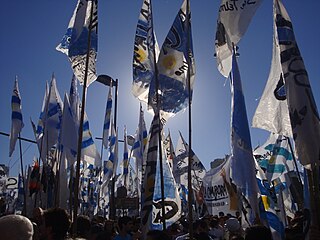
La Cámpora is an Argentine political youth organization supporting the governments of Néstor Kirchner and Cristina Fernández de Kirchner. It is named after former peronist president Héctor José Cámpora. It was established by Máximo Kirchner in 2003 and became politically prominent after the death of former president Néstor Kirchner.
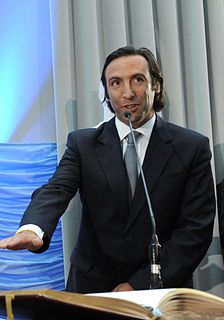
Hernán Gaspar Lorenzino is an Argentine lawyer and public policy maker. He was appointed Minister of Economy of Argentina by President Cristina Kirchner in 2011.
Juan Pablo Schiavi is an Argentinian agronomist and politician who has held a wide range of positions at the top of national and municipal government of Argentina.
The following lists events that happened in Argentina in 2017.







